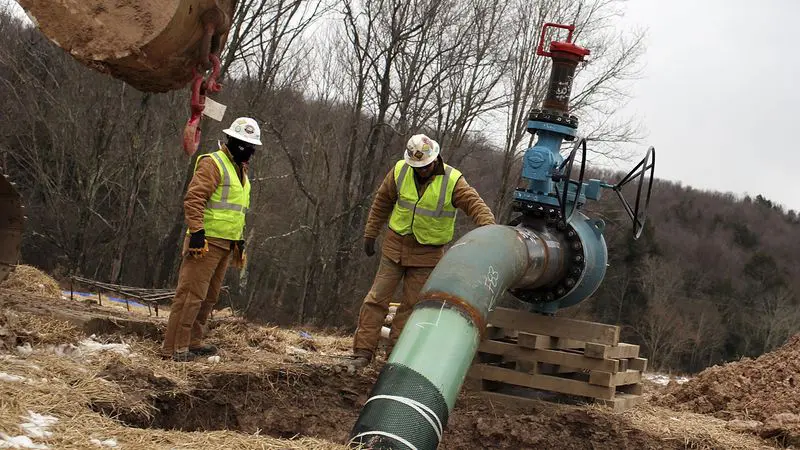Mass. DPU Continues Fossil Fuel-Dominant Business-As-Usual
Earlier in December, the Massachusetts Department of Public Utilities (DPU) approved a petition by Eversource Energy to supply new gas service in the Town of Douglas, MA (DPU Docket No. 22-107). The town had initially requested gas supply as part of an economic development project and stated that gas service was a prerequisite before commercial and industrial customers would bring operations to the town. Douglas does not currently receive gas service, so to meet anticipated customer demand, Eversource must build new gas distribution infrastructure.
The DPU rejected arguments by Acadia Center and others that building brand new gas infrastructure is at odds with the Massachusetts’ climate goals and is not in the public interest. The Massachusetts 2050 Decarbonization Roadmap makes clear that to meet the state’s greenhouse gas emission reduction requirements, we must move rapidly away from fossil fuels towards clean and non-emitting alternatives.
Although the Douglas case involves a relatively small project, multiplying many small projects like this one will keep Massachusetts dependent on expensive fossil fuel infrastructure, rather than on a pathway of reducing emissions and ensuring a clean, equitable energy system for all residents.
And while the Douglas case and the DPU’s approval are not unusual, the proceeding is an important example of why Massachusetts must reform utility regulation and how a lack of reform will continue to result in business-as-usual outcomes that work in the interest of the fossil fuel industry.
Acadia Center’s RESPECT proposal seeks avoid these business-as-usual outcomes by reforming how long-term distribution planning is done. RESPECT proposes two key reforms to break down planning silos planning and reduce the financial conflicts of interest inherent to utility planning today. First, states should conduct comprehensive and independent energy system planning that incorporates more meaningful stakeholder input. Second, states should create neutral, statewide Planning Entities that can facilitate long-term planning and separate the entity that does the planning from the entity that owns the infrastructure and therefore has a financial stake in the outcome of the planning decisions.
The Douglas case can help us see how RESPECT reforms would lead to better outcomes. In its request to the DPU, Eversource included a short letter from National Grid (the electricity provider in Douglas) which explained that providing an all-electric solution—an option that would be much more aligned with the state’s climate goals—would require system upgrades that would take two to five years to complete.
Stakeholders, including the Attorney General’s Office, questioned the information provided by National Grid and expressed concerns that the underlying data and analysis was not made public. When asked about specifics of the electrification study that National Grid conducted, Eversource claimed that it “has no information to impart on the electric distribution service requirements” because it “is not the electric distribution service provider for the Town of Douglas.” (DPU 22-107, AG-1-5).
RESPECT attempts to break down exactly these types of planning silos. Under business-as-usual, in which gas and electric utilities are not required to fully coordinate on long-term planning efforts, problems like a two-to-five-year time horizon for electrification upgrades will not become apparent until a utility requests approval for new fossil infrastructure. By that time, as we’ve seen with Douglas, it will be easy for a utility to claim that electrification upgrades will take too long, and because the town need gas service now, the DPU should approve the new fossil infrastructure.
Successful implementation of RESPECT reforms would help to avoid scenarios where fossil fuel interests continue to win out over cleaner alternatives. RESPECT reforms would also enable greater transparency and access for stakeholders that are traditionally excluded from the planning process and would ensure that long-term planning prioritizes equity, environmental justice, and greenhouse gas emission reductions in addition to safety and reliability.
Acadia Center is working to implement utility planning reforms in Massachusetts through legislation and is hopeful that such reforms can help stakeholders, regulators, and utilities reimagine what is possible for the Commonwealth’s energy future.
For more information:
Kyle Murray, kmurray@acadiacenter.org, 617-742-0054 ext. 106
Oliver Tully, otully@acadiacenter.org, 860.246.7121 ext. 202




















Follow us